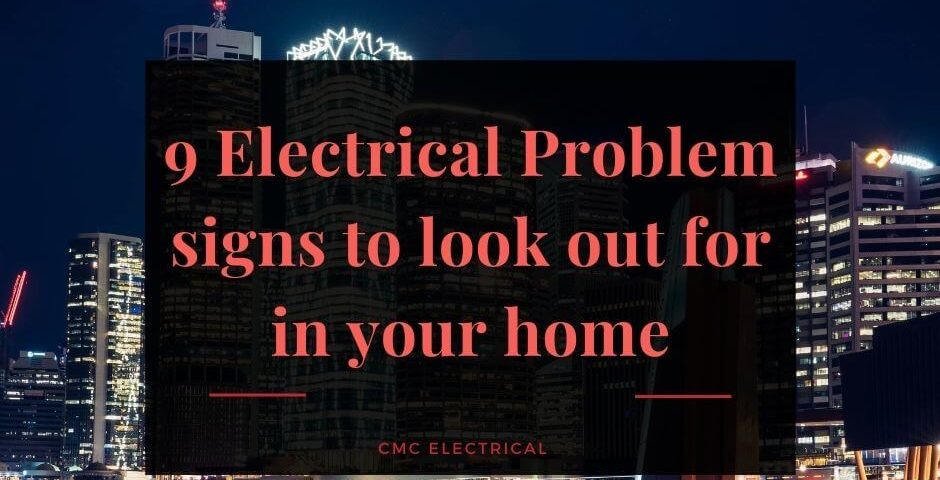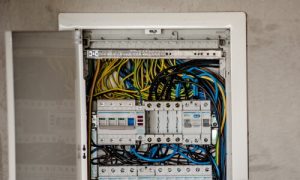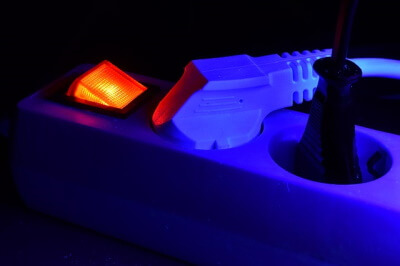
Here are 8 reasons why you should switch to LED lighting
13 May 2021
4 benefits of electrical switchboard maintenance for your business
7 July 20219 Electrical Problem signs to look out for in your home

Can you spot Electrical Problems?
Electricity has made our lives easier. It keeps your lights on, keeps your phones charged, and is there 24/7 for you to use. Yet as useful as electricity is, it has the potential to cause some problems. Home electric fires account for over 20,000 fires each year, causing devastation for Australian families.
Most of the time these fires can be prevented, and you can learn warning signs the help avoid fire dangers. The cost of repairs can not only save thousands but will give you peace of mind.
Here are 9 electrical problems you can spot:
 #1 Electrical smells or unfamiliar odours
#1 Electrical smells or unfamiliar odours
If you detect an odd smell coming from an outlet, unplug it and stop using it immediately. Contact a qualified electrician to have a look at it. Additionally, breaker panels or a fuse box emitting an odd odour could be another warning sign that something may be wrong. If you are in doubt, call an electrician.
This is not to be confused with appliances creating electrical or unfamiliar odours when you are beginning to use them. Appliance smell is a separate issue entirely as it may be from the appliances paint, finish or motor.
A common smell or odour may mean you have an Arc fault. An arc fault is a discharge of electricity from a circuit, and this fault often leads to wires becoming breached. It is a common caught of electrical fires but can easily be prevented with an AFCI tester (Arc-fault circuit interrupter)
#2 Cheap or fake brand electrical products
The safety of electrical products depends on the quality.
Cheap or counterfeit products are prevalent these days and primarily found in online shops and markets. Items such as extension cords, power boards, and even night lights at low prices are electrical problem waiting to happen.
I strongly suggest you stick to reputable stores and stick to the big brands. Also, check for the Underwriters Laboratory (UL) sticker because It’s not worth risking your safety and home.
#3 Warm or sparking outlets and switches
It is normal for electrical appliances to heat up during operation. But the outlet itself should never get hot. If you notice that an outlet is warm or hot, you should immediately stop using that plug and troubleshoot the issue.
Light switches are the same and shouldn’t heat up, except for dimmable switches. However, even dimmer light switches should never get too hot to touch. Warm light fixtures could also indicate that you have a lack of insulation.
If your light switches or outlets are sparking, you should quickly call a professional electrician to see if you have an Electrical problem.

#4 Buzzing sounds
Any buzzing sounds from your outlets or switches could be a sign of an electrical problem. Switches and outlets should always operate without a sound. If you hear any cracking, sizzling sounds or constant buzzing, then you should consult with a qualified electrician.
#5 VIR (vulcanised Indian rubber) cabling
Older homes, specifically homes built in the ’70s use outdated wiring technology. VIR cables (Vulcanised Indian Rubber) were installed in thousands of Australian homes during 1910 and 1970. The wiring consists of rubber and tinned conducted coating. As they age, VIR cables break down and deteriorate, creating a high risk of electrocution and fire. If your home was built over 50 years ago, there is a risk that your property could have this wiring.
#6 Flickering lights
Flickering lights are usually a sign of a power surge. More often, flickering lights occur when using appliances, and these surges can become a problem for not only your lights but your appliances.
If your lights flicker during the normal operation of appliances, meaning that you have an electrical problem.
#7 Lights brighter or dimmer than others
If you notice that some lights are dimmer or brighter, this may be a warning sign. There are usually two possible reasons:
- You are using a different light with a higher or lower output.
- You have a bad neutral connection.
Be sure to check light wattage and specifications, and if problems persist you should call an electrician.
#8 Loose outlets and broken light switches
Having broken light switches and loose outlets are safety and electrical hazards, but a fire hazard.
If your outlets or switches stop working occasionally, it could be a sign of bad or loose wiring. Loose outlets can create the potential for electric shocks, even a partially exposed outlet could be electrocuted.
If you experience any issues like above, call an electrician ASAP.
#9 Circuit breaker issues
A tripped circuit breaker is a safety mechanism for when a circuit is overloaded. Although this can occur from normal day to day usage, frequently occurring could mean you have an electrical problem. It is important to track down what appliances are causing this problem. The problem may be a toaster, microwave, kettle, etc.
If the problem is not connected to an appliance, it may mean you have a serious underlying problem. If you have any concerns, be sure to bring them up with an electrician.
Conclusion
In conclusion, looking out for these signs is critical not only for your safety but your home. Electrical problems can be hard to spot, ignored and just overlooked. It is crucial that if you think anything is wrong with your electricity, get it sorted straight away!
CMC Electrical and Communications effectively provide a wide range of electrical services to suit your needs. We offer services from residential electrical to emergency electrical. Get in touch with us for all your electrical needs.

